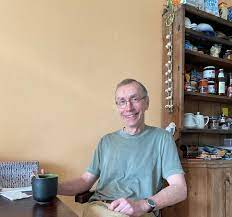Exhuming new light
Svante Paabo’s Medicine Nobel win should inspire biologists to shun academic straitjacket
The Nobel Prize for Medicine this year will be awarded to Svante Pääbo, a Swedish geneticist and a director of the Max Planck Institute for Evolutionary Anthropology in Leipzig, Germany. Science being of an increasingly collaborative and competitive nature, recent trends in Nobel Prizes suggest that there are usually multiple winners for every prize. It is a tribute to the originality and revolutionary implications of Pääbo’s research that in a world perennially reshaped by advances in biology, he has been chosen as the lone winner of the Medicine or Physiology Prize this year — something not witnessed since 2016. Pääbo, 67, has quietly instigated a Copernican revolution. Much like the latter placed the sun at the centre and demoted the earth to another circumscribed, perambulatory planet, Pääbo brought Neanderthals — believed to be among the many human-like species and losers of the evolutionary race — to the centre on the question of human evolution. Thanks to his work, it is now known that Europeans and Asians carry anywhere between 1%-4% of Neanderthal DNA. Thus, a large fraction of humanity will be influenced in terms of propensity to disease and adaptability to conditions by a species that evolved, like humans, in Africa, but 1,00,000 years earlier. Pääbo demonstrated this by pioneering and perfecting techniques to extract DNA from fossil remains, a herculean task as they contain too little and are easily contaminated. By building on these methods, Pääbo and his colleagues eventually published the first Neanderthal genome sequence in 2010. To put that in perspective, the first complete sequence of the human genome was only completed in 2003. Comparative analyses with the human genome demonstrated that the most recent common ancestor of Neanderthals and Homo sapiens lived around 8,00,000 years ago; that both species frequently lived in proximity and interbred to an extent that the Neanderthal genetic stamp lives on.
In 2008, a 40,000-year-old fragment from a finger bone yielded DNA that, in Pääbo’s lab, turned out to be from an entirely new species of hominin called Denisova. This was the first time that a new species had been discovered based on DNA analysis. Further analysis showed that it too had interbred with humans and 6% of human genomes in parts of South East Asia are of Denisovan ancestry. These discoveries throw up philosophical questions on what it means to be a ‘species’. Pääbo’s win must inspire future biologists in India to pursue deep questions and use science to shed new light rather than compartmentalise themselves in an academic straitjacket.
